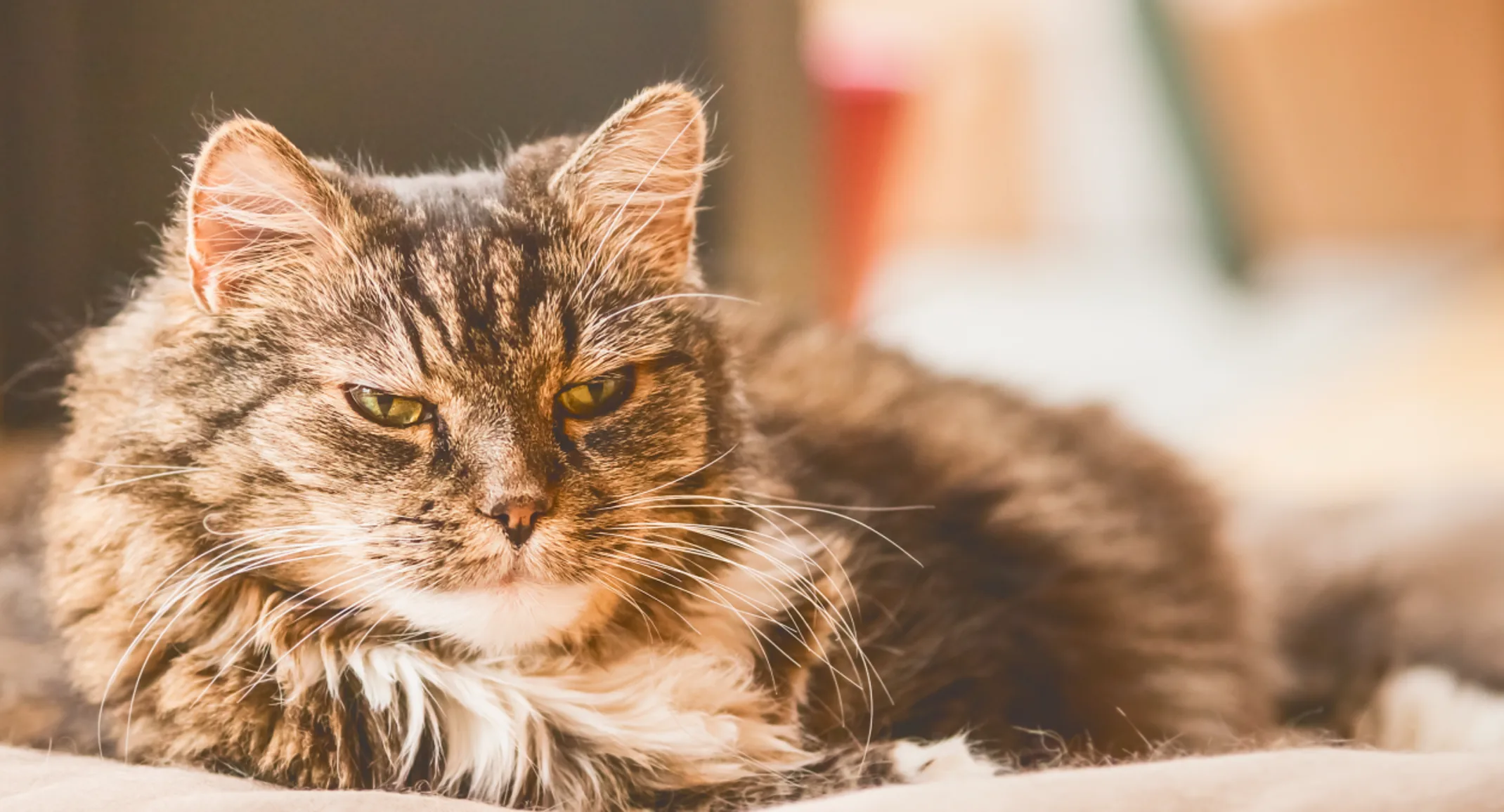Senior Cat Care: Keeping Your Feline Friend Happy in Her Golden Years
June 15, 2025 · General

At Aloha Animal Hospital, your trusted veterinary clinic in Southwest Las Vegas, NV, we have a soft spot for the wise, whiskered felines entering their golden years. These dignified companions bring calm, affection, and a touch of sass to our homes—and they deserve proactive care and attention to keep them comfortable as they age.
Senior cat health isn’t just about managing disease; it’s about preserving quality of life through thoughtful care, regular checkups, and small lifestyle adjustments. In this post, we’ll offer a full elderly cat care guide, share practical aging cat wellness tips, and explore how to respond to senior cat behavior changes with compassion and insight.
When Is a Cat Considered a Senior?
Cats are considered seniors around age 10 and geriatric by age 15. However, just like humans, every cat ages at her own pace. You may start noticing changes in mobility, behavior, or appetite as early as age 8.
Breed, genetics, lifestyle, and medical history all influence how your feline friend ages. At Aloha Animal Hospital, our vet clinic tracks these details closely during each exam so we can tailor care for your aging cat’s individual needs.
Common Health Issues in Senior Cats
Senior cats are at greater risk for several age-related conditions. Catching these issues early can greatly improve outcomes and comfort. Some of the most common conditions include:
Kidney disease – One of the most common problems in older cats
Arthritis – May cause stiffness, difficulty jumping, or reduced activity
Hyperthyroidism – Often presents as weight loss despite a good appetite
Diabetes – Symptoms include excessive drinking and urination
Heart disease – Often silent until symptoms become advanced
Dental disease – Painful and impacts eating and overall health
At our pet clinic, routine wellness exams and diagnostics help detect these conditions early. We typically recommend bloodwork, urine analysis, and blood pressure checks for cats over age 7 to monitor for subtle changes.
Recognizing Senior Cat Behavior Changes
Senior cat behavior changes can be gradual or sudden. These behaviors often indicate discomfort, cognitive decline, or chronic illness. Some signs to watch for include:
Increased vocalization (especially at night)
Changes in litter box use
Decreased grooming or unkempt fur
Avoiding social interaction
Confusion or disorientation
Pacing or wandering aimlessly
Aggression or irritability
Not every behavioral shift is simply “old age.” Our vets can help determine whether a physical issue or cognitive change is driving your cat’s new habits.
Aging Cat Wellness Tips: Supporting Her Daily Routine
Keeping an older cat comfortable doesn’t have to be complicated. Small changes in Fluffy’s environment and routine can help her feel more secure and mobile.
Tips for boosting senior cat health:
Provide warm, padded resting spots with easy access
Offer ramps or stairs to help Fluffy reach favorite perches or beds
Use shallow litter boxes with low entry points to reduce joint strain
Ensure easy access to food and water—place bowls on each floor
Brush her regularly if grooming declines
Keep routines consistent—cats thrive on predictability
We also suggest maintaining a calm home environment, as stress can amplify health problems in elderly cats.
Nutrition for Senior Cats
As cats age, their dietary needs change. Senior formulas typically offer:
Moderate calories to prevent obesity or support healthy weight
High-quality protein to maintain muscle mass
Omega-3 fatty acids for joint and brain support
Antioxidants for immune function
Our veterinarians will assess your cat’s weight, body condition, and bloodwork to recommend the best diet. In some cases, we may suggest therapeutic diets for kidney support, diabetes, or digestive concerns.
Hydration is especially important. Many senior cats have reduced thirst drive, which can worsen kidney issues. Adding canned food, sodium-free broth, or a pet fountain can help increase fluid intake.
Importance of Regular Veterinary Checkups
Twice-yearly wellness exams are ideal for senior cats. Early detection of age-related illness is key to prolonging comfort and independence. During senior visits, our animal hospital team may recommend:
Comprehensive physical exam
Full blood panel and urinalysis
Blood pressure check
Dental exam
Thyroid and kidney screening
Weight monitoring
Behavior discussion
We’ll also talk with you about any concerns at home—because nobody knows Fluffy like you do.
Supporting Cognitive Health in Older Cats
Some senior cats experience feline cognitive dysfunction (FCD), which is similar to dementia in humans. Signs include:
Night-time yowling
Forgetting litter box locations
Seeming “lost” in familiar spaces
Changes in sleeping patterns
Pacing or staring at walls
While there’s no cure, there are ways to manage it. Our vet may recommend:
Nutritional supplements (like Omega-3s or SAMe)
Enrichment activities and puzzle toys
Nightlights to reduce disorientation
Medications if needed for anxiety or confusion
We’ll help you develop a plan that keeps your feline pal mentally stimulated and supported.
End-of-Life Planning and Comfort Care
It’s never easy to think about, but planning for your cat’s comfort as she nears the end of life is one of the most loving things you can do. Our vets provide palliative and hospice care options when curative treatments are no longer effective.
We’ll guide you through:
Pain management and mobility support
Quality of life assessments
Nutritional adjustments
In-home care strategies
At Aloha Animal Hospital, we walk with you through every stage, always honoring the bond you share with your pet.
Visit Our Veterinary Clinic in Southwest Las Vegas, NV
At Aloha Animal Hospital, your compassionate veterinary clinic in Southwest Las Vegas, NV, we’re dedicated to helping your feline companion thrive through every life stage. Our team of experienced vets is here to provide personalized guidance, medical support, and practical advice for enhancing senior cat health.
From early detection to comfort care, we treat your elderly kitty like the cherished family member she is. Call today to schedule a wellness exam and let’s work together to keep your feline friend purring well into her golden years.
This blog is meant for educational purposes only. Always consult your veterinarian for diagnosis, treatment, and personalized senior care planning.

